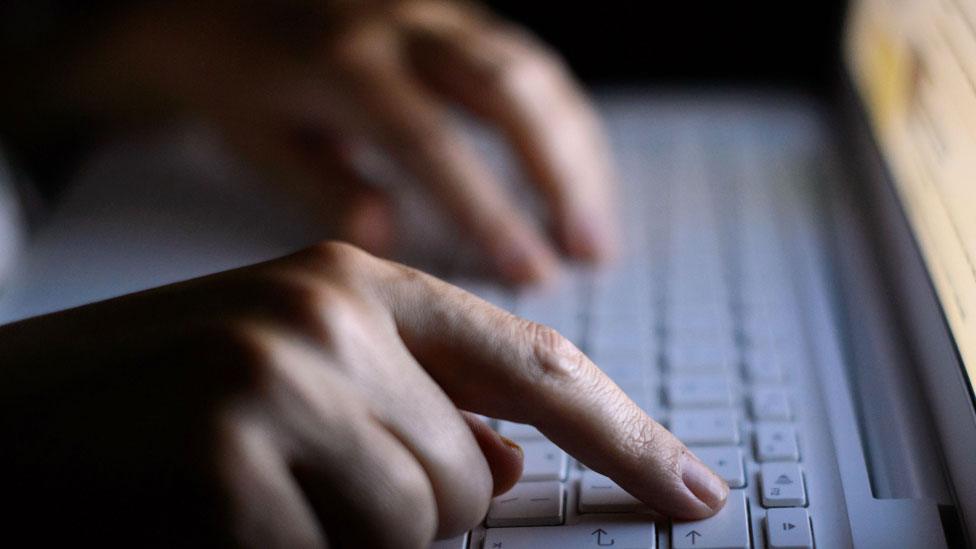Is extremism really getting worse?
- Published
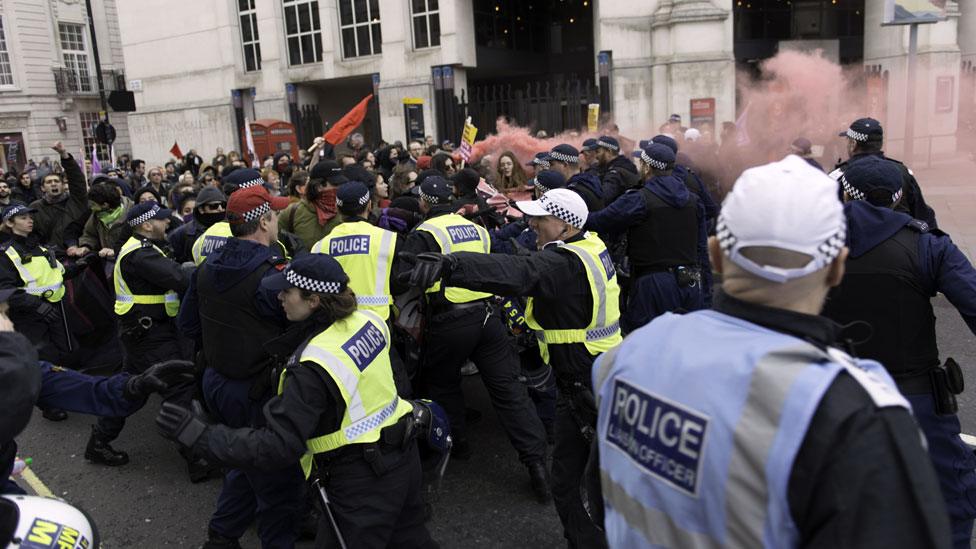
Is extremism on the rise?
There is a widely-held narrative that we are living through a time of worsening intolerance in the UK, with people becoming more vitriolic and polarised.
But Dr Julian Hargreaves, an adviser to the government's Commission for Countering Extremism, external, challenges the evidence.
He wants research to produce a better-informed debate - systematically mapping levels of intolerance, looking at how labels such as "Islamist extremism" can skew the picture and asking whether there are other ways of looking at patterns of extremism.
For instance, instead of looking at religious groups for warning signs of extremism, should we examine links with addictive, obsessive behaviour, such as drug addiction?
Should there be attention to personality types as well as political beliefs?
The commission, set up in the aftermath of the Manchester Arena terror attack, has the task of assessing the scale of extremism and finding ways to tackle any support for such violence.
Extreme or strongly-held view?
But what is "extremism"? How does it differ from strongly-held, legitimate beliefs? Nobody sees themselves as an extremist.
Dr Hargreaves, a researcher specialising in Britain's Muslim communities, defines it as an attempt to "exclude or coerce" - but with the distinguishing feature of being "harmful".
It does not have to be violent. He gives the example of some Muslim voices who argue on religious grounds against voting.
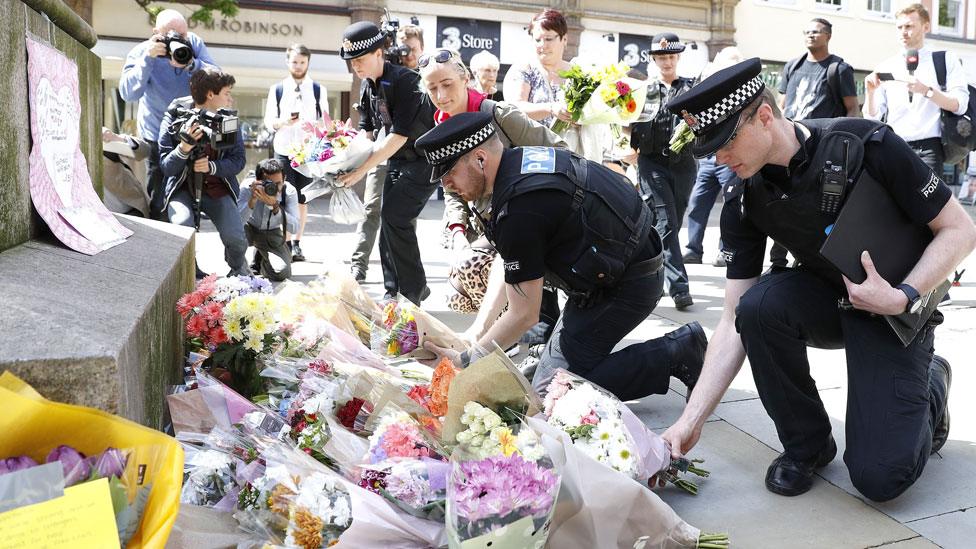
The Commission for Countering Extremism was set up after the Manchester Arena terror attack
"I would argue that's a form of extremism," says Dr Hargreaves, based at the Woolf Institute in Cambridge, a college dedicated to building bridges between faiths.
"Or far-right groups with a racist message - they might not be advocating violence, but those messages can easily fuel violence."
But he says extremism should not be confused with religious "fundamentalism", which can be a more orthodox, but legitimate, expression of belief.
He rejects the way "the two have become interchangeable".
"There are all kinds of people who are very much outside the mainstream, but whose views are by most definitions harmless," he says.
Dr Hargreaves, with a research background in both criminology and religion, says it would be very "dicey territory" to adopt a perspective in which "strong religious views could be seen as extremist".
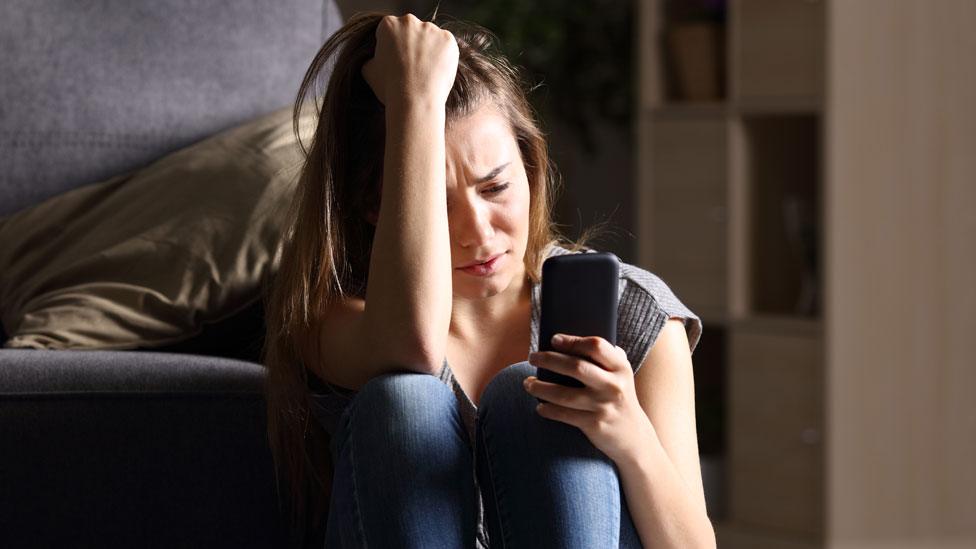
Social media makes extremism and intolerance more visible - but does it mean such attitudes are more widespread?
He also says intolerance could sometimes be seen as a positive force - such as greater intolerance of sexism, racism or homophobia.
The inquest following the London Bridge attack, which started this week, shows the appalling consequences of violent extremism.
But away from the intense scrutiny following such terror attacks, Dr Hargreaves says the bigger picture can remain much less clear.
Change the labels, change the trend
The labels used to describe extremism can also completely change the apparent trends.
The most recent figures from the Prevent counter-terror programme in England and Wales, published in December, showed a sharp fall in referrals over "Islamist extremism", down from 61% to 44% in a single year.
This could be seen as a significant breakthrough against radicalisation.
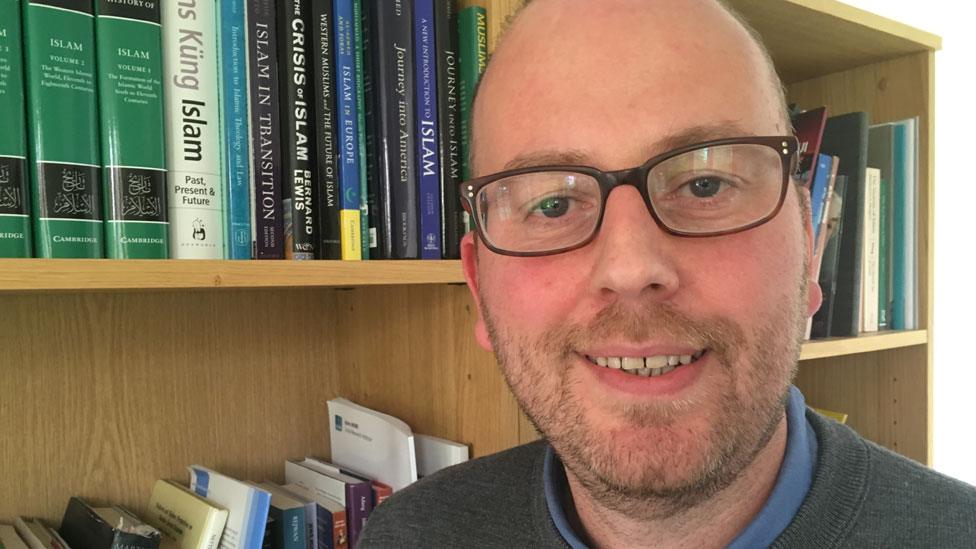
Julian Hargreaves wants more objective evidence in claims about extremism
But what really made the difference was putting many more into another category, "mixed, unstable or unclear ideology".
This reconfiguring meant that at a stroke "Islamist extremism" became a minority of the cases, with 44% of referrals.
The "unstable and unclear" now accounted for 27%, while 18% related to right-wing extremism and 11% were "others", including environmental campaigns and the far left.
This more "nuanced" approach, he says, made "unstable" the second biggest group, and rather than a counter-terror intervention, he says some might need mental health services or housing and employment advice.
Politics or paranoia?
Dr Hargreaves says there might be other ways of looking at extremism - as a way of behaving rather than a way of believing.
This could include an overlap with addictions.
"In a lot of cases the individuals had been referred to addiction services and had documented problems with drink or drugs," he says.
There might be connections with mental health problems too.
"Paranoid, psychotic delusions are not that far removed from types of grievances you often hear around people with extremist views," says Dr Hargreaves, part of the expert group for the anti-extremism commission.
He says that his contribution is to keep pushing for more evidence.
Segregation
There will be a survey of levels of tolerance - which he says will look at whether intolerant attitudes are really increasing, rather than becoming more visible through social media.
He questions the reliability of unelected "community leaders" who might have their own agendas.
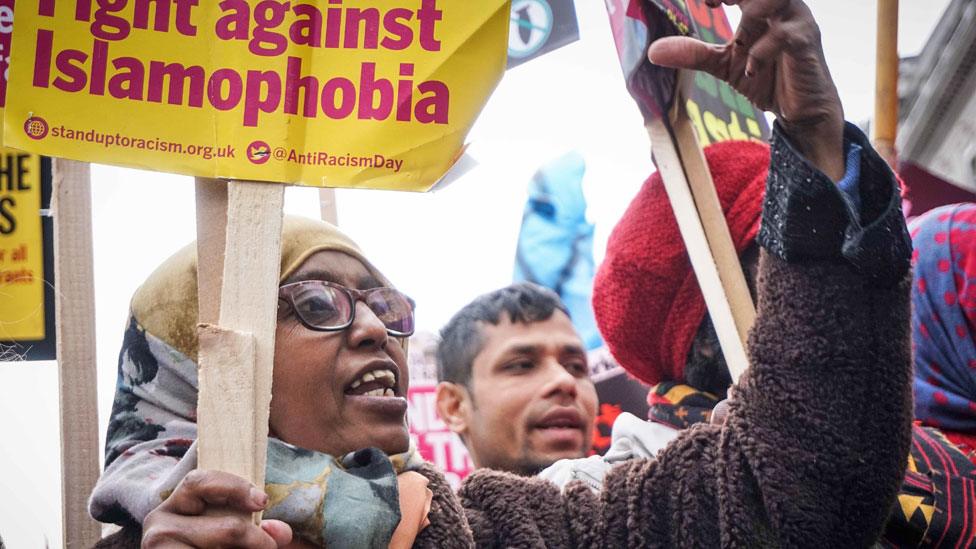
Another side of "intolerance" is that people are less likely to tolerate prejudice, says Dr Hargreaves
Claims about segregation and prejudice, such as in northern towns in England, he argues, might miss the positive local connections taking place.
"It's important not to generalise. The situation on the ground can be more complicated.
"Communities are muddling through in that classic British way, sometimes away from the top-down initiatives and policy strategies."
He warns against "pointing fingers" at particular groups - including white, working-class communities.
"Policy-makers would do well to have a little more sympathy for communities that have undergone change," he says.
The values and beliefs of "socially conservative" groups should not be marginalised, he says.
But how can extremism be tackled?
Dr Hargreaves is not convinced by "grand narratives" about ideological battles.
"It's much more useful to move away from grand, heroic language and think of these issues as being akin to public health issues.
"Taking a public health approach means providing the data needed, moving beyond headlines about 'rising extremism' to think about who is at risk, where are they, what are the risks?"
He says the "role of family, friends and communities is still undervalued in policy circles" - and better use should be made of moderate religious leaders.
But he says relying on stereotypes about extremism is a "disservice to communities".
- Published19 March 2019
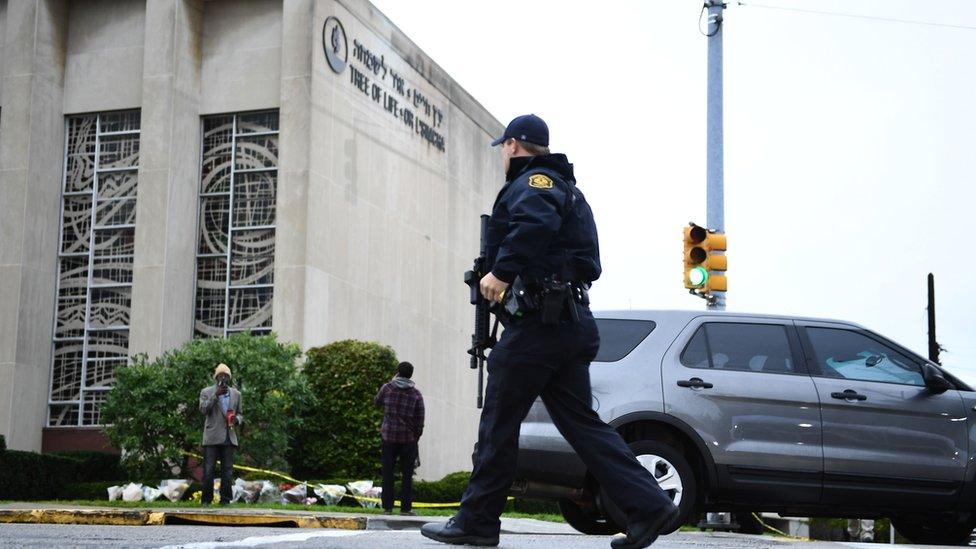
- Published30 March 2019

- Published1 September 2018
